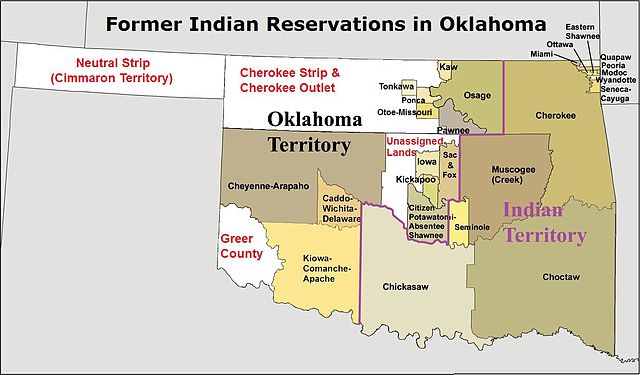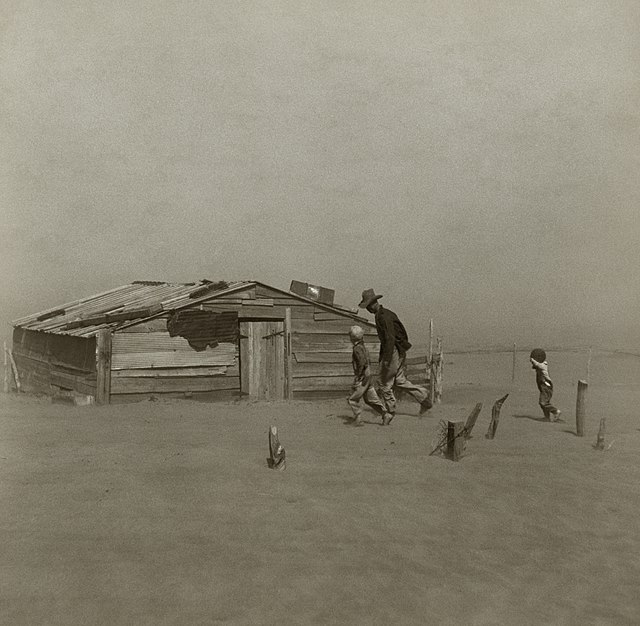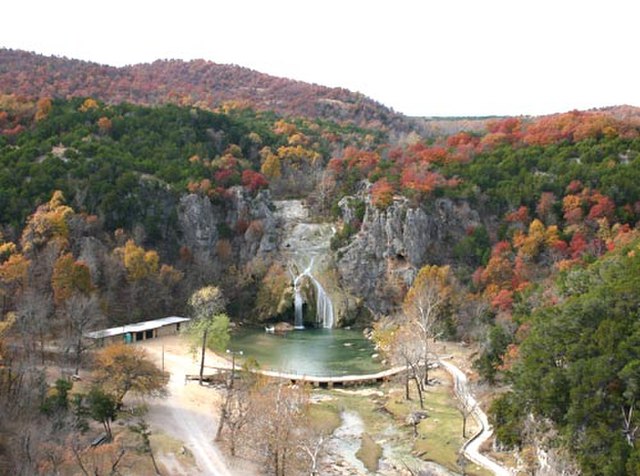The Wichita Mountains are located in the southwestern portion of the U.S. state of Oklahoma. It is the principal relief system in the Southern Oklahoma Aulacogen, being the result of a failed continental rift. The mountains are a northwest-southeast trending series of rocky promontories, many capped by 500 million-year old granite. These were exposed and rounded by weathering during the Pennsylvanian and Permian Periods. The eastern end of the mountains offers 1,000 feet (305 m) of topographic relief in a region otherwise dominated by gently rolling grasslands.
Elk Mountain, in the eastern Wichita Mountains
Wichita Mountains Narrows
Granite knob in the Wichita Mtns.
Granite overlying gabbro - a view of Mount Sheridan from the northeast
Oklahoma is a landlocked state in the South Central region of the United States. It borders Texas to the south and west, Kansas to the north, Missouri to the northeast, Arkansas to the east, New Mexico to the west, and Colorado to the northwest. Partially in the western extreme of the Upland South, it is the 20th-most extensive and the 28th-most populous of the 50 United States. Its residents are known as Oklahomans and its capital and largest city is Oklahoma City.
The state's name is derived from the Choctaw words okla, 'people' and humma, which translates as 'red'. Oklahoma is also known informally by its nickname, "The Sooner State", in reference to the Sooners, settlers who staked their claims in formerly American Indian-owned lands until the Indian Appropriations Act of 1889 authorized the Land Rush of 1889 opening the land to white settlement.
Indian reservations in Oklahoma prior to the Dawes Act of 1887.
The Dust Bowl sent thousands of farmers into poverty during the 1930s.
The bombing of the Alfred P. Murrah Federal Building in Oklahoma City was one of the deadliest acts of terrorism in American history.
Turner Falls








